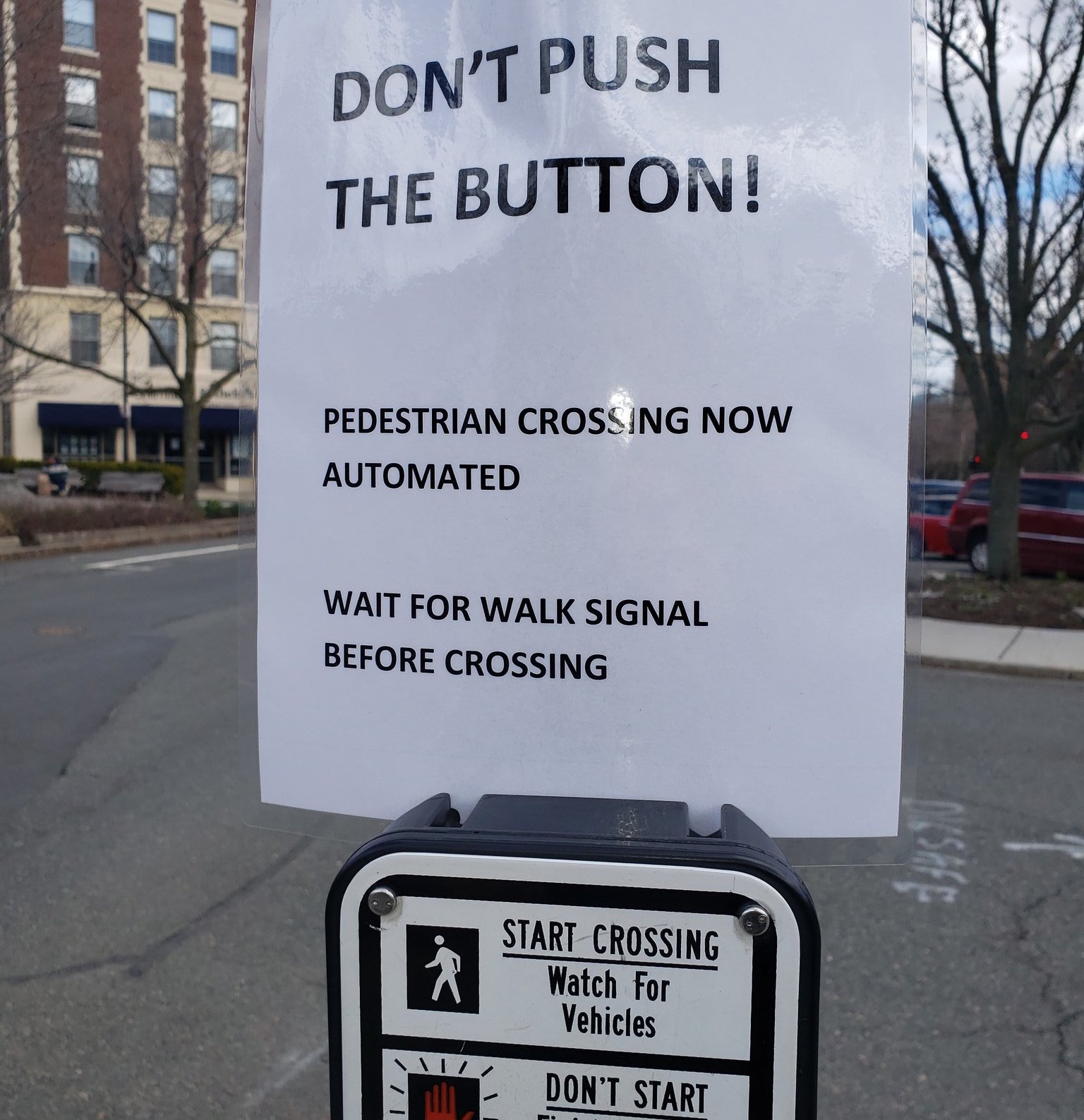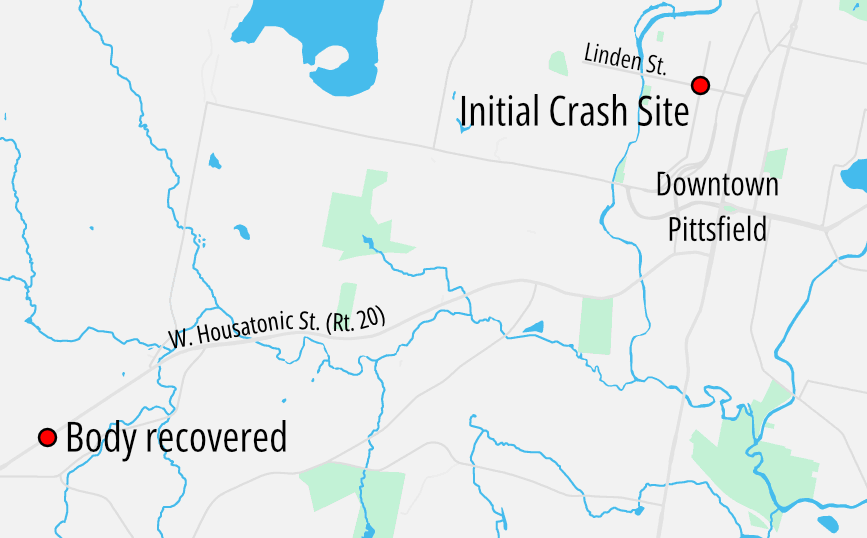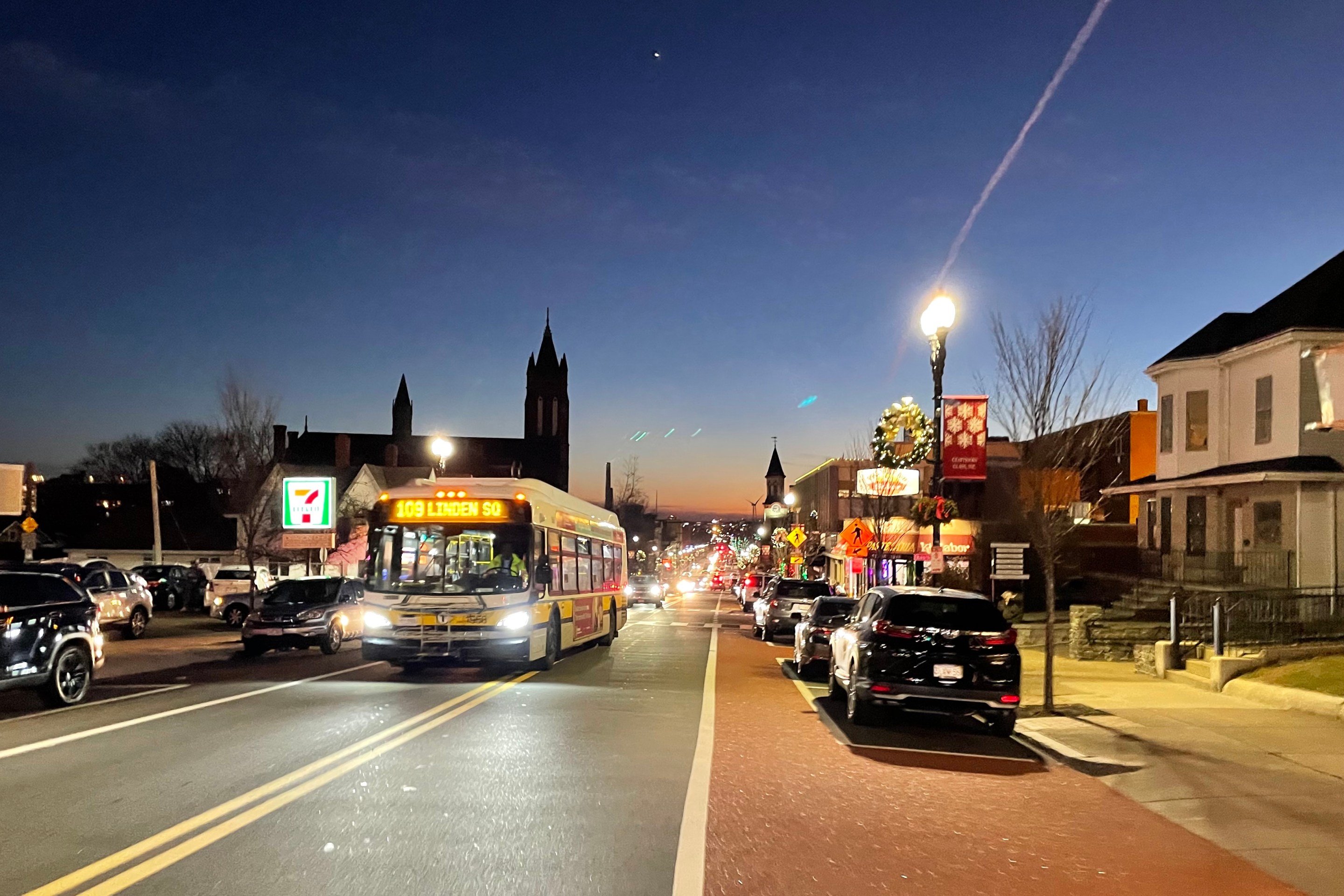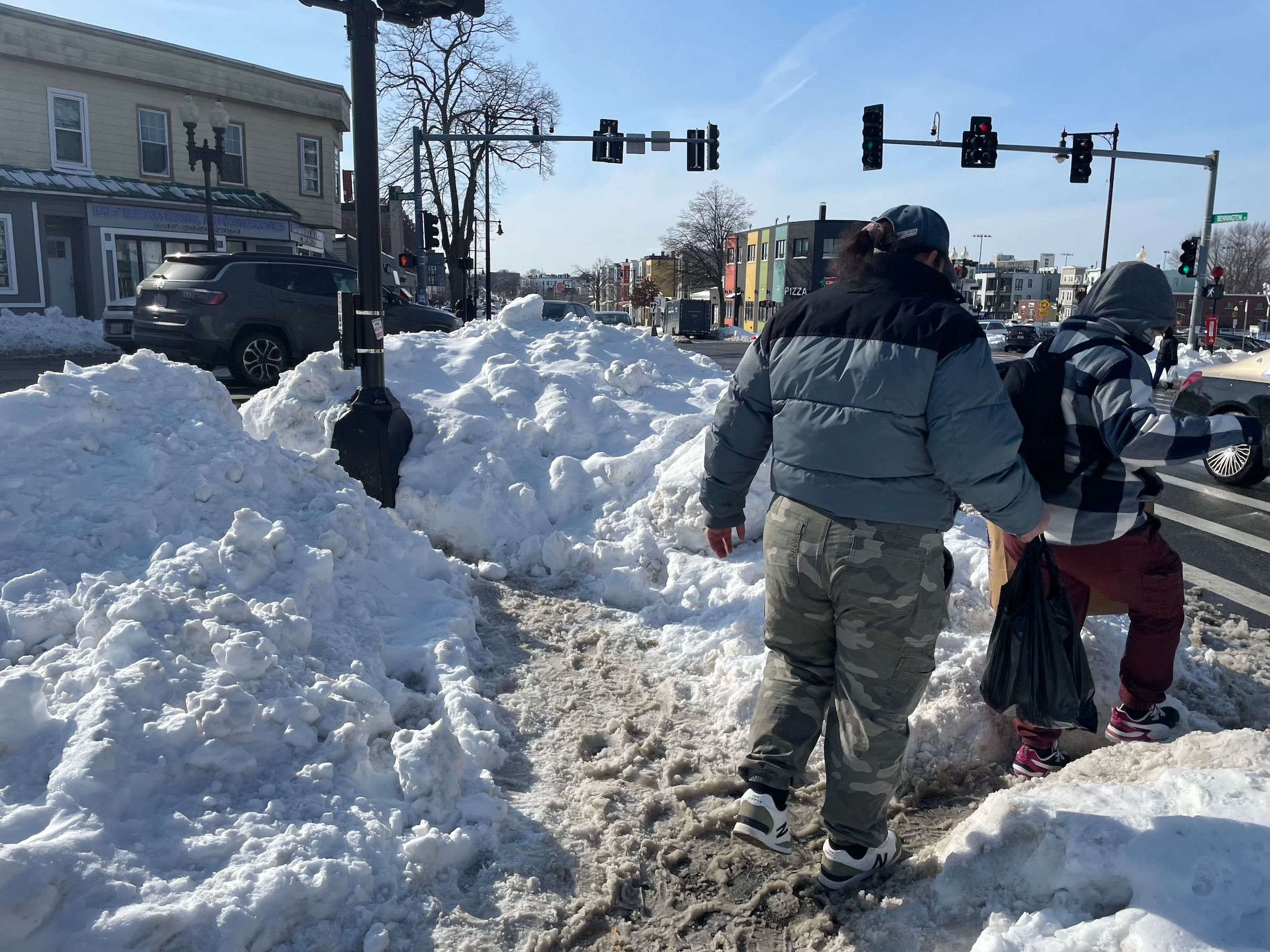In the past month, several municipalities in the region, including Brookline, Cambridge, Arlington and Providence, RI, have acknowledged the uselessness of push-to-walk buttons at crosswalks, and have reprogrammed traffic lights to make walk signals automatic.
Before the COVID-19 pandemic, those "beg buttons" were merely one of the hundreds of inconveniences that engineers forced upon pedestrians in their self-defeating efforts to facilitate car traffic.
But now, the buttons have taken on a more menacing potential as high-touch surfaces where the new coronavirus could spread.
In late March, the Town of Brookline rapidly reprogrammed dozens of traffic signals to bypass the buttons, and posted signs (pictured above) warning people not to touch them. Cambridge and Arlington followed suit within a few days.
And in early April, the city of Providence, RI announced that its beg buttons would remain deactivated even after the pandemic ends.
“Providence has taken a really aggressive approach to flattening the curve, so one of the first things they decided to do was get rid of the beg buttons to eliminate those high-contact surfaces," said Liza Burkin, organizer for the Providence Streets Coalition. "Two days later they announced it would be permanent.”
Some buttons still retain an important function for visually-impaired pedestrians, by emitting audible indications about the status of a traffic signal when the button is pressed.
“There are two different problems here - forcing everyone to push a button to cross, versus making (the signals) accessible," says Brendan Kearney, Deputy Director of WalkBoston (disclosure: Kearney also serves on the StreetsblogMASS board of directors). "Cambridge is doing this the right way: automate the signals so that you don’t have to press the button, but still have the button available for people who need the accessible, audible signal.”
In the City of Boston, city officials have told reporters in the past that many downtown traffic signals are already programmed to generate walk signals automatically, and that beg buttons at intersections actually have no influence on the lights at the city's busiest intersections. In other locations, the buttons reportedly only work at certain low-traffic hours, such as late at night.
But pedestrians get no indication about whether walk signals at a particular location will be activated automatically, or whether a button needs to be pushed. The inconsistency clearly confuses users, and invites the natural assumption that walk signs are simply broken, or should just be ignored:
This crossing of the Great Stroad known as Cambridge / Tremont has been programmed to require pedestrian actuation to get a walk signal. An outrageous and unsafe choice, @BostonBTD. Peds waited a cycle, oblivious, then dodged traffic. #bospoli @WalkBoston pic.twitter.com/yFLp8biuE2
— Chris Dempsey (@cdempc) January 3, 2020
Then there are cross-jurisdictional issues: some traffic signals are controlled by local governments, while others (near state highways, which tend to see even heavier traffic) are controlled by MassDOT.
"MassDOT has no plans to eliminate crossing signal buttons on the approximately 1,400 hundred pedestrian cross walk signals it manages statewide," wrote Kristen Pennucci, the agency's Communications Director, in an email last week.
“If you can’t change signals now, when are you going to adjust them?" asks Kearney of WalkBoston, who notes that with light traffic and evidence that drivers are speeding more, it's an ideal time to reprogram traffic signals to give pedestrians more time.
"We should have very short signal cycles so that people don’t have to push a button and don’t have to wait as long, and we should expect people in cars to slow down and stop more often so they’re not flying through intersections,” says Kearney.






